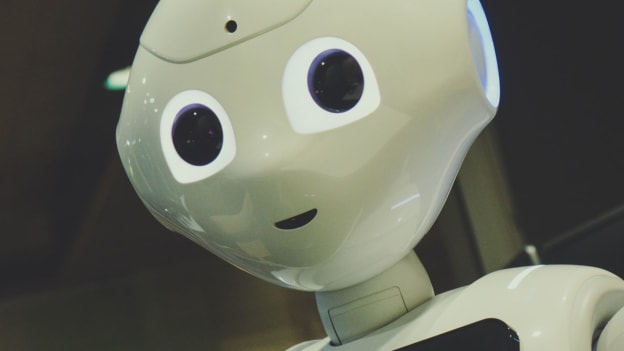Robots are coming for your job. Here's how you can be irreplaceable

Artificial Intelligence is silently taking over industries, replacing people in functions that mostly involve repetitive tasks.
Industry leaders are only expecting AI to grow bigger as the pandemic accelerated the shift to digital in the world of business.
A Semrush report projects the size of the AI market to reach US$180 billion by 2025, with Asia-Pacific experiencing the highest growth rate.
Pundits are calling this phenomenon “Industry 4.0” or the 4th Industrial Revolution succeeding the third industrial revolution started the era of electronics and nuclear energy in the late 20th century.
As smart technology steadily plants its roots in business, the debate on whether “robots” will replace humans heats up.
The question of AI replacing people, however, could be misleading, according to Garry Kasparov, author of “Deep Thinking: Where Machine Intelligence Ends and Human Creativity Begins.”
“The question of whether AI will replace human workers assumes that AI and humans have the same qualities and abilities — but, in reality, they don’t,” he wrote in an article in the Harvard Business Review.
Kasparov pointed out that machine intelligence allows technology to imitate human acts, identify patterns in data, and optimize processes – all that without getting tired.
These qualities, he added, make AI perfect for routinary and repetitive functions that will otherwise exhaust human workers.
Human intelligence, on the other hand, is “authentic” because it allows us to imagine, feel, anticipate, judge, and adapt to situations.
“Although Artificial Intelligence seems opposite to Authentic Intelligence, they are also complementary,” Kasparov explained.
Jobs threatened by AI takeover
A large percentage of business operations are routinary and repetitive, which means AI could be taking over these functions soon.
Customer service
As early as now, businesses have already made use of “chatbots” and automated messaging systems to respond to customer queries and concerns.
While one may argue that AI in customer service is still in its primitive stages, there’s no denying that it has already started to take its place in the industry.
Data entry
In today’s world of business, data is king. Most companies in every industry are using data to create solutions and improve their products.
But data entry jobs can be too routinary and repetitive for humans, so expect AI to take over this function in the next few years.
Bookkeeping
Software solutions have already been providing bookkeeping solutions in the accounting process, a function that was previously provided by human bookkeepers.
With technological progress rapidly accelerating, you can only imagine the extent of bookkeeping tasks AIs can do in the industry.
Proofreaders
Gone are the days when proofreaders are very much in demand for companies that publish content. They have already been replaced by Grammarly, Hemingway, and other typing assistant tools.
Receptionists
Automated phone and scheduling systems, auto-check-in software, digital ordering applications – these technologies are slowly and steadily replacing the job of receptionists today.
In the future, the technology could even allow drones to replace humans in delivering food, shopping baskets, and other items.
The list of jobs that can be taken over by AI soon is still short, but it’s because everything is based on the technology we know today.
Given the pace of technological progress, there could be new innovations and discoveries on the horizon, which could lead to more jobs being taken over by AI in the next decade.
How to survive the ‘AI’ takeover
As Kasparov pointed out, AI and humans aren’t enemies. They are complementary, which means AI is here to make our work better.
Technology has definitely evolved in a short span of time, and humans must catch up. With AI here to augment human work, the possibilities are endless.
Here are some tips to help you adapt to the future of work.
Learn new technologies
It goes without saying that keeping yourself updated with the latest trends in technology will help you survive the future job market.
Learn how smart systems work. Attend technology expos. Read articles about the latest innovations. The more you know, the more you’re ready for the next generation of work.
Upskill and specialise
Chances are, the majority of the skills we have will be replaced by AI in the long run. This is already a signal for you to check on the gaps in the industry where you can fit in.
Find that gap and upskill. Specialize in areas in your industry that can make good use of existing AI technologies.
Sharpen your management skills
AI can do a lot of things, but it will always need someone to manage the whole system. Human managers with deep industry knowledge are the people for this job.
Unlike robots, great managers can make great judgement calls in crucial situations, which is why you need to start building your management skills as early as now.
Learn to make strong relationships
Robots can work in perfect synchrony. But they don’t care about each other. They are only programmed to do the work. Period.
Humans, on the other hand, have the unique ability to empathize and build relationships, skills that will be important in a world with AI technologies.
AI is here to stay whether we like it or not. It may be intimidating at first but learning how it works and how it can help us create better opportunities is the only way forward.
The future will not be run by robots, but it will be augmented by AI. If you think about it, it’s not as bad as they wanted it to sound, right?
















